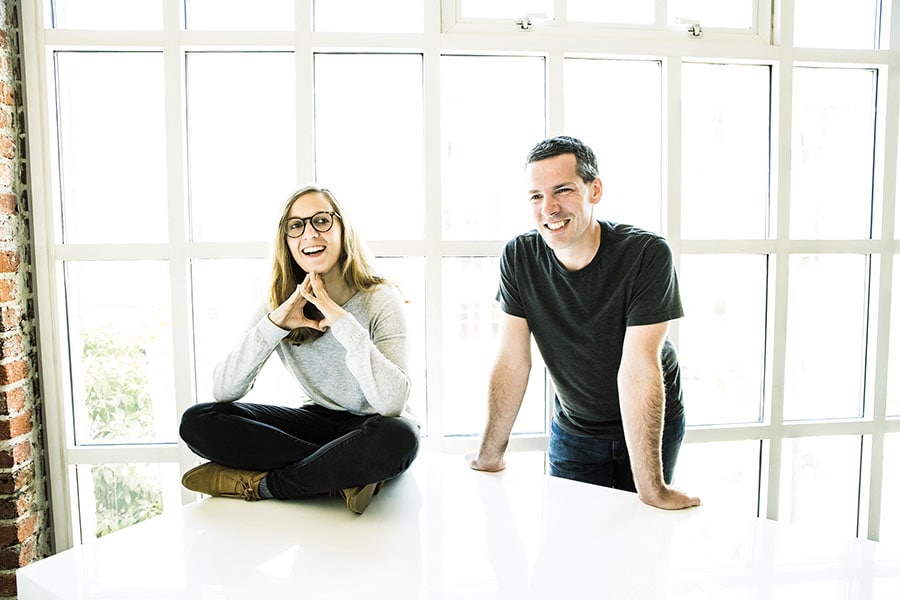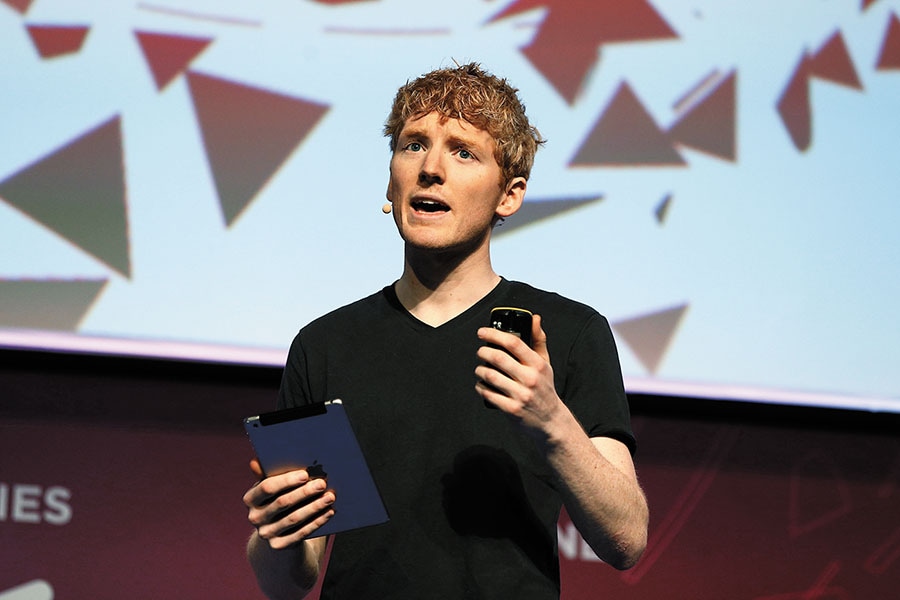
Long live email?
The inbox had been left for dead. Now it's being resurrected by the two founders of Front, a startup with big-name backers and a mission to make old-fashioned email cutting-edge again
 Co-founders Mathilde Collin (left) and Laurent Perrin facedpersonal hardships even as they reinvented corporate inboxes. He received, and beat, a cancer diagnosis; she suffered a breakdown caused in part by the ensuing stress
Co-founders Mathilde Collin (left) and Laurent Perrin facedpersonal hardships even as they reinvented corporate inboxes. He received, and beat, a cancer diagnosis; she suffered a breakdown caused in part by the ensuing stressImage: Eric Millette
Mathilde Collin fidgeted with her backpack as she walked into a building overlooking the Tower of London, worried that she’d seem “too San Francisco” to the executives running a shipping broker that had recently celebrated its 134th birthday. Collin, the CEO of startup Front, was there to pitch software that turned a standard email inbox into a shared workspace—perfect for a logistics team responding to a stream of price quotes for cargo ships’ availability around the world.
To her surprise, it was the broker, Simpson Spence Young, that promptly began pitching her. The company had surveyed its employees and discovered their communications tools, more suited to the telegraphs of an earlier century, needed an overhaul. They wanted Front’s help.
Turns out a lot of older businesses that rely heavily on email are eager for Front’s help. “Having a new tool would change their life,” says Collin, 30. Better to fix what you have. Younger tech firms like Shopify and private payments leader Stripe have also signed on, paying between $9 and $79 per user each month (more money gets you more shared inboxes and features). Altogether, the seven-year-old firm has 5,500 customers, and revenue has quadrupled since 2017 to an estimated $32 million last year.
It’s tiny, but its elite backers, including Sequoia Capital and founders of software leaders Atlassian, Qualtrics and Zoom—and even email killer Slack—are betting on Front. They have poured nearly $140 million into the San Francisco–based company, most recently boosting its valuation to more than $800 million in January, four times its figure just two years earlier.
Unlike others who have been quick to declare the “death” of email—Slack rode a mission to replace it all the way to a stock debut last year—Collin and her co-founder, Laurent Perrin, 38, believe that the problem with the years-old protocol, dominated by Microsoft Outlook and Google’s Gmail, is in the packaging, not the product.
(This story appears in the 30 November, -0001 issue of Forbes India. To visit our Archives, click here.)
 Patrick Collison, CEO of Stripe
Patrick Collison, CEO of Stripe



